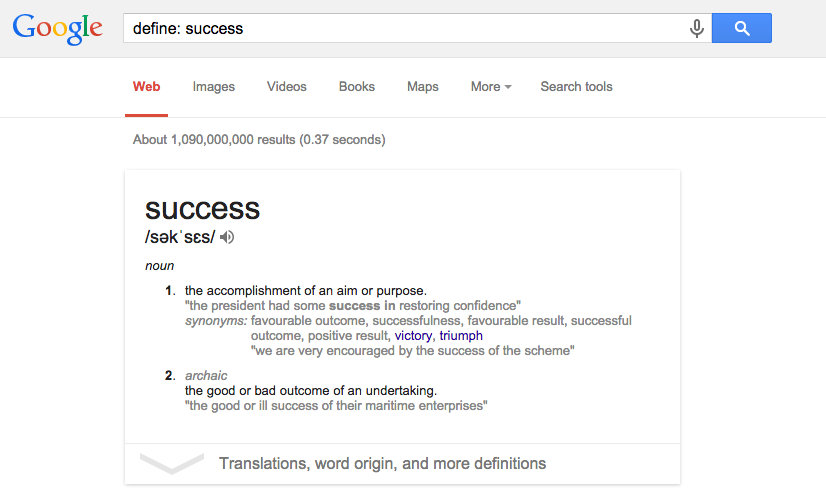It’s time as employers, you focused more attention on the mental wellbeing of your employees. Now before you get defensive, you may already be doing so. But the harsh reality is most corporations aren’t.
Making your workplace mental health friendly isn’t as simple as attending a few workshops, ticking a few boxes and having drinks every Friday. It’s so much more than that.
But why worry about mental health? Health and safety regulations have already made you change multiple ways you operate and now you’re being asked to do more? Well as I currently write this article, Suicide is the biggest killer of men under 50 and also young people. More than 1 in 4 now suffer with mental health and stress is the biggest reason why an employee would take a sick day. £204,000 each year is being spent paying for those sick days.
As an employer, you’re responsible to look out for someone’s physical health, so they can physically get to work and physically do the job needed. But what if that employee is struggling mentally? What if they’re underperforming because of how they’re feeling? Again, you already know this. Because like your employee, you’re human. You feel stress, fear, anxiety, low and high moods and you too rely a lot on your mental health to work effectively. But what else can be done to look after your employees mental health?

Changing The Work Environment
The environment were in can highly affect our mental health. From the overall design of the office to the people within the environment, looking after the conditions your employees are working in is important.
A lot of studies have shown productivity and overall work satisfaction increases dramatically when in a good environment, so creating a safe, positive environment can dramatically improve the overall wellness of your employees but also the work produced.
You’ve probably seen or read countless case studies around office design and how it can to improve productivity, but aside from how the desks are laid out paying attention to how people are treated by others, rules and restrictions made by senior management and how that makes employees feel alongside the overall trust employees have with one another is critical.
Think about it, when you spend time personally with people you struggle to get on with or feel uncomfortable around it affects how you feel. You don’t get excited at the prospect of spending your whole day with those people. So making sure your employees enjoy spending time with those closest to them, making sure they’re happy with rules you’ve set throughout the day and also happy with the overall environment in the office can have a positive impact on their mental health and work productivity.

‘Mental Health’ Days
In the UK, there were 12.5 million working days lost due to work-related stress, depression or anxiety in 2016/2017. Now preventing those days being lost should be imperative as an employer, and one of those ways could be through self care days. Otherwise known as a mental health day, giving your employees the chance to take a day off when things are getting too much can reduce the amount of days taken off because of stress throughout the year.
Sometimes not feeling like we can phone in and tell management how we feel creates more stress, pressure and anxiety than knowing that it’s ok to take a day off if we need too. We feel like we’re letting someone down, which just makes things worse. Again, you hear it with physical health all the time. “Take a day off, focus on getting better and it you won’t have more time off due to the physical illness getting worse”. Why can’t it be the same with mental health? If someone is stressed, suffering with anxiety or struggling giving them the option to ‘recover’ is needed.
Now before you say offering this will be taken advantage of by people who aren’t struggling, well sick days already are being taken advantage of. Do you really think every absence is truthful? How many times do you think you’ve allowed someone a day off due to the flu when really, they were struggling to deal with their mental health? Or, heading to a day drinking session with their friends. Give your employees the option, if they need it, and you’ll reduce the amount of sick days taken off for stress throughout the year.
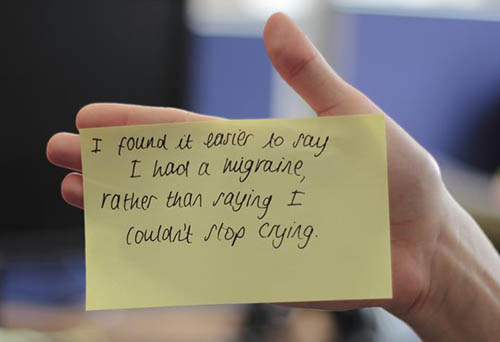
In House Counsellor
The word ‘counsellor’ might be too formal, but offering a professional service within your work can really give employees the peace of mind they need to know, that they can talk and get help when needed.
The company ‘Social Chain’ is the perfect example of this. They hired Kiera Lawlor, 27, who works as the Director of Happiness within the company. They offer unlimited holiday, daily yoga glasses, treats such as a bar, office puppies, a chill out room and access to services such as mortgage advisors, mentors for business and life skills and confidence coaches.
‘At Social Chain we have no hierarchy, we make sure that everybody has a say in the things that we do,’ Kiera told Femail.
With an in house professional, making them accessible for everyone to use when needed will reduce a lot of the stigma that comes with it. Lots of companies have tried it before, even Schools use in house counsellors, but tucking them away in a room that no one dares to be seen going in isn’t the idea. They should be a part of the team, there to diffuse situations that get stressful and there to advise when required.
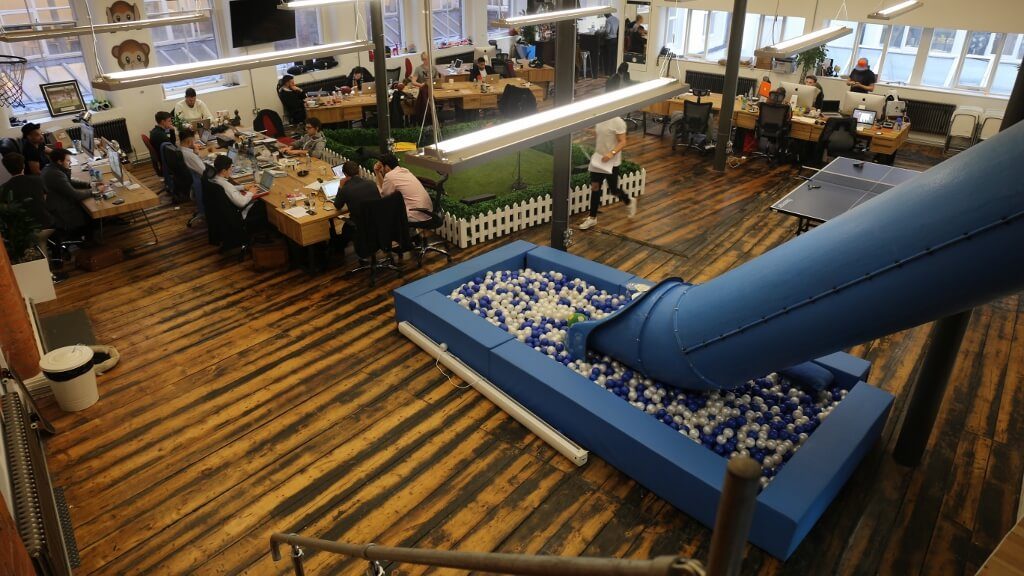
Don’t think you have the money to hire someone like this? Think about how much you’re losing with those sick days which will only increase and the lack of work load from employees struggling. It’s not just a human based decision, it’s a business one too.
Mental Health First Aider
If hiring an in house counsellor doesn’t work, or hiring as Social Chain did… A Director of Happiness then why not use your existing employees to promote better mental health within the work place?
Training and choosing to have a mental health first aider who can be on hand to help other employees within your corporation when in need. MHFA offer training and resources on mental health first aid, so being able to have a mental health first aider is achievable, but not enough companies have one.
By law, every corporation needs to have someone who is first aid trained to be on hand for any physical illness or accident. But for mental health? There’s nothing to legally declare you need to have one. But Natasha Devon MBE, who was behind the ‘Where’s Your Head At’ campaign earlier this year is looking to change that. With nearly 100,000 signatures to make all businesses and colleges introduce mental health first aiders.

Plan ahead, as this is something I’m personally certain will become a legal requirement soon and get yourself a mental health first aider. You might have someone in mind already, but see who’s up for the task too…
Better yet, you can always start by appointing ‘champions’ within the company itself. People willing to talk openly about mental health and help others. Compassion is key when it comes to helping someone with stress, anxiety and other mental health issues and someone with lived experience is often more willing to listen and be able to help. Again, see if anyone is willing to become a ‘champion’ for the company. The go to person who promotes good mental health and is willing to help others if needed. But don’t forget to reward them for it.
An Open Conversation
The way mental health is stigmatised within society is the way mental health is being stigmatised within the workplace. Silence solves nothing. Making sure that your employees know that they can talk, they can have an open conversation about what they might be feeling and also letting them know that the workplace is a safe environment for them to share (without the fear of them losing their job or being judged for their performance) is important.
Staff surveys can be done on a weekly or monthly basis, discreetly, seeing how employees feel. Making a note and addressing any discrimination within the workplace around mental health will also help create an open conversation, and show that as management, you’re proactive in making it safe for them to discuss how they feel.
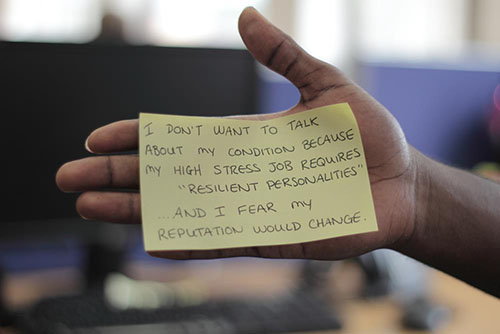
Look After Your Own Mental Health Too
Finally, being able to look after your own mental health as an employer will help your employees too. Lead by example, your openness and willingness to talk and be proactive about your own mental health and the mental health of others will show them that it’s something you, as their boss encourages. It will help break the stigma, it will help them be more open and more importantly will make them want to come and work for you every morning.
It’s the ripple effect in action, if you share openly your inspire them to do so too when they need too.
Look after yourself first, as employees will feed off your positivity and healthy mind. Go on training courses around mental health if needed, giving yourself to tools to know how to reach out to someone, how to spot the signs of someone struggling and equip yourself with the knowledge to pass down to others within the company.
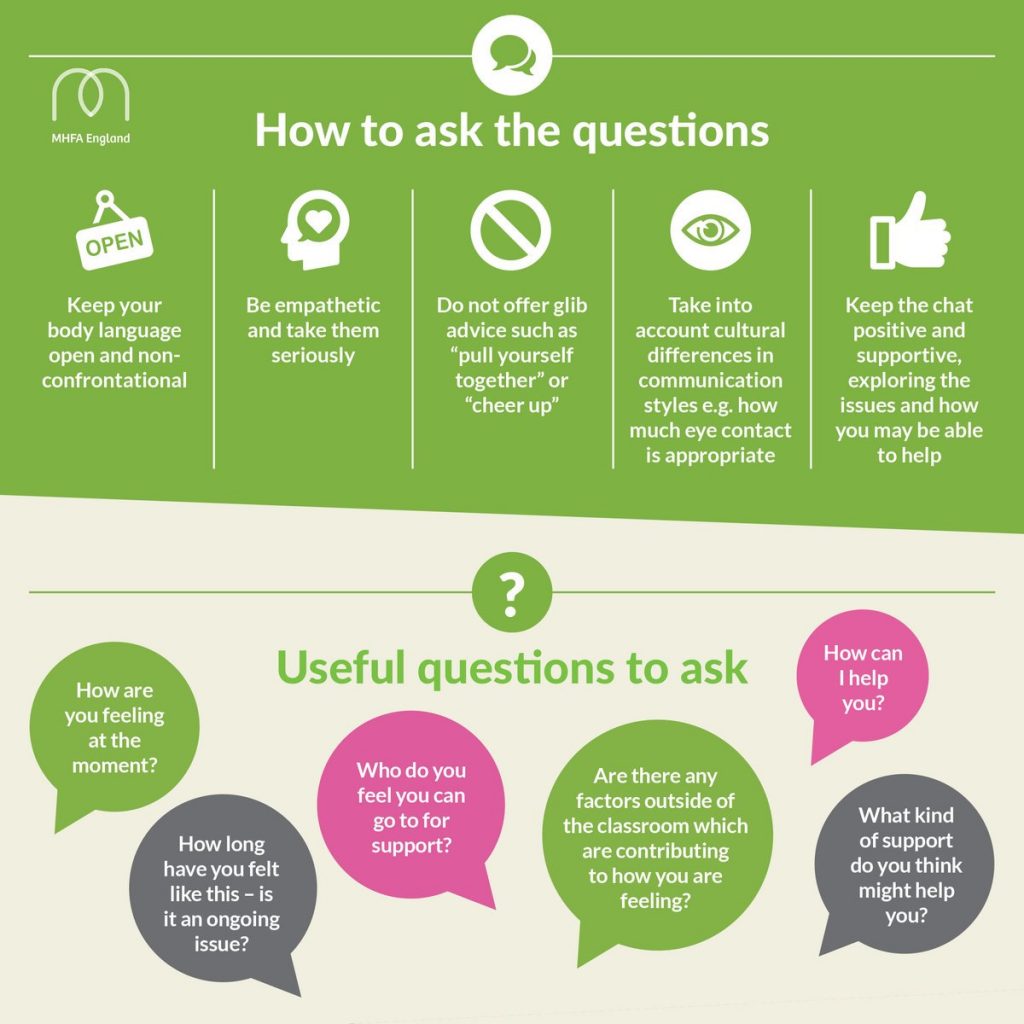
I’m not asking you to solve everyone’s issues, I’m just asking you to lead by example. Change starts with you.
What other ways can companies and work places provide better support for mental health?
What actions are you taking as an employer?
Comment below and let me know.
For more about me, or how I can help your organisation deal with mental health better reach out to me via email. Full contact details can be found here.




